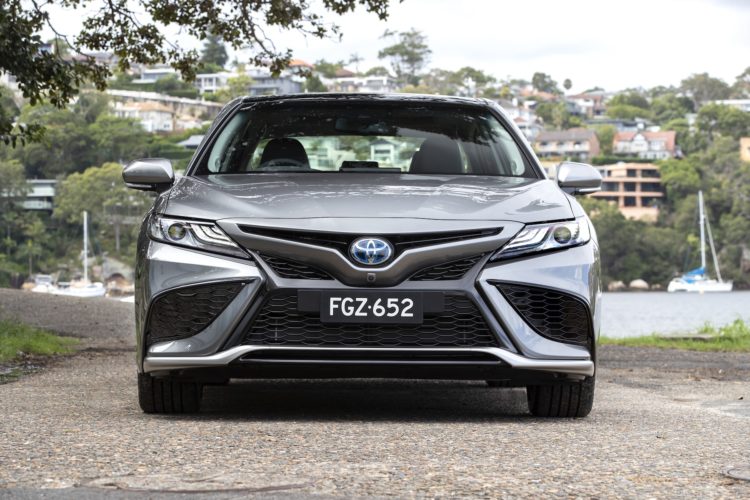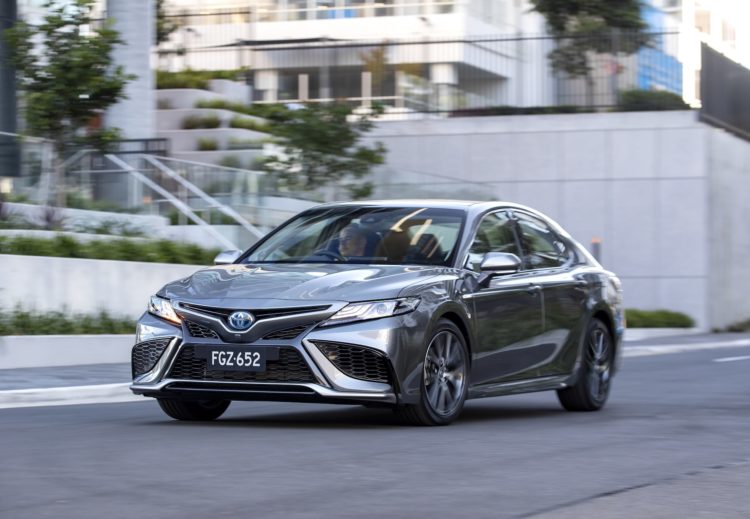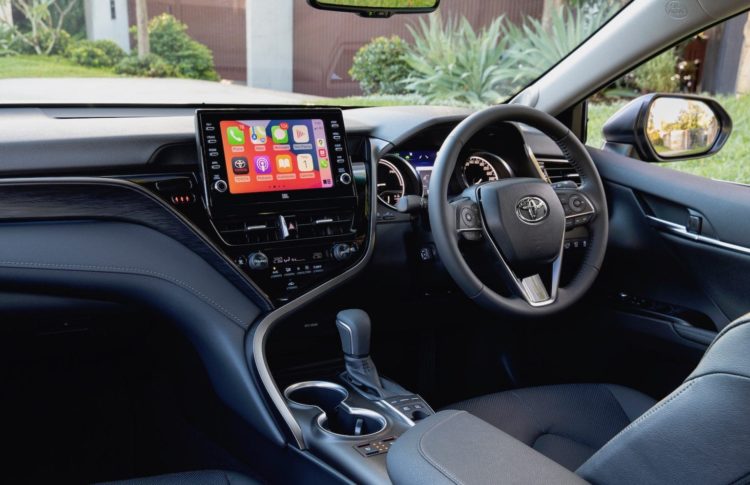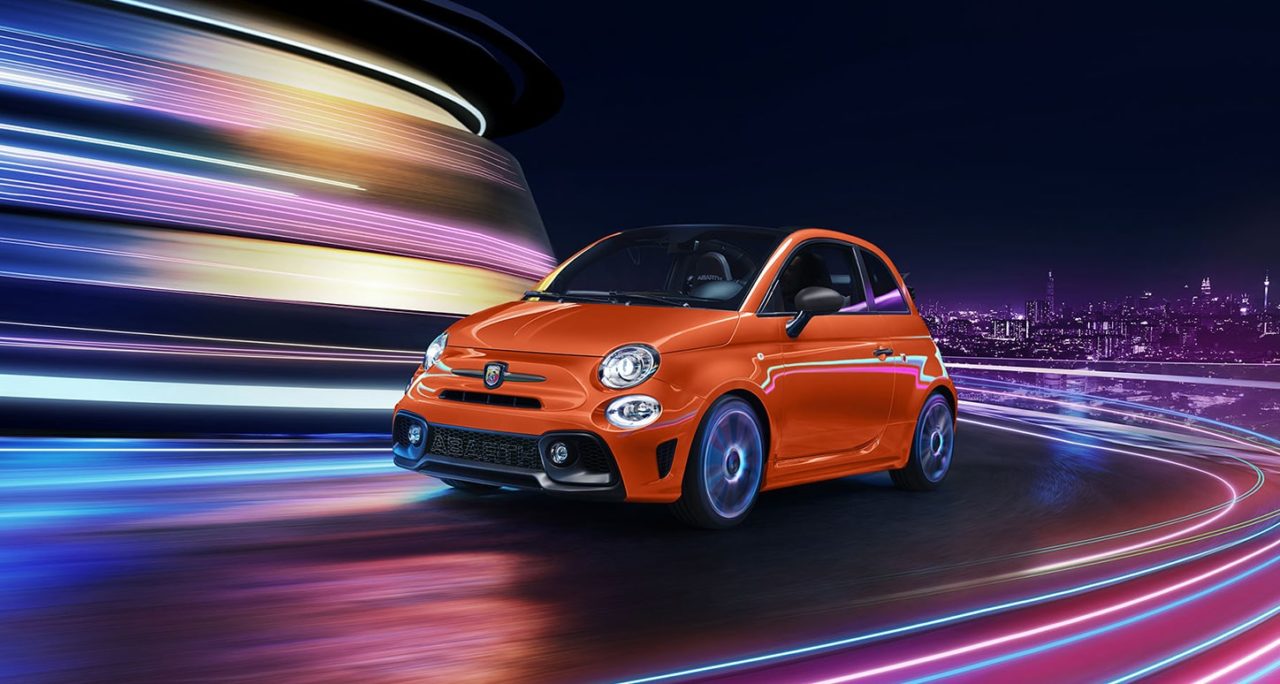Toyota has confirmed that customer orders for Camry hybrid variants will be paused for the foreseeable future, with the company struggling to keep up with demand for petrol-electric versions of the iconic Camry sedan.
The move to pause orders for the Camry Hybrid comes as customer wait times remain above two years. Toyota says that even with supplies for the Camry hybrid improving since the mid-point of the year, “extraordinary demand” for fuel-efficient hybrid variants has resulted in around 90 per cent of buyers ticking the box on a hybrid over standard members of the Camry family.
Toyota says that even with supplies for the Camry hybrid improving since the mid-point of the year, “extraordinary demand” for fuel-efficient hybrid variants has resulted in around 90 per cent of buyers ticking the box on a hybrid over standard members of the Camry family.
It’s not hard to see why, considering fuel economy figures drop from 6.7L/100km on a combined cycle from the standard 2.5-litre four-cylinder petrol down to between 4.2L and 4.7/100km in the Camry Ascent and SX Hybrid, respectively.
In the first nine months of 2023, 7,130 Camrys have arrived on Australian shores and made their way to buyers, 6,490 of which came packing Toyota’s fuel-efficient hybrid tech. Toyota’s Vice President of Sales, Marketing and Franchise Operations, Sean Hanley has said the move to pause orders was in the interest of transparency to customers.
Toyota’s Vice President of Sales, Marketing and Franchise Operations, Sean Hanley has said the move to pause orders was in the interest of transparency to customers.
“I want to assure all Toyota customers that we are doing everything possible to increase supply for Australia and to expedite delivery of vehicles as they arrive,” Hanley said.
“Our global production teams have consistently adopted countermeasures that have improved the supply of components affected by global shortages, such as semiconductors.” “Throughout this journey, we are particularly humbled that our local customers have maintained their trust in Toyota and remained loyal to the brand,” Hanley added.
“Throughout this journey, we are particularly humbled that our local customers have maintained their trust in Toyota and remained loyal to the brand,” Hanley added.
Toyota has not confirmed just how long the order pause for Camry Hybrids here in Australia will be in effect for; we’ll be sure to update you when we’ve been given a timeline.
Earlier this year, Toyota announced that it was aiming for 10.6m deliveries this year, though admitted that it might fall 10 per cent short of that production goal, a considerable 1.6 million more vehicles than it had delivered in 2022, to keep up with demand.
